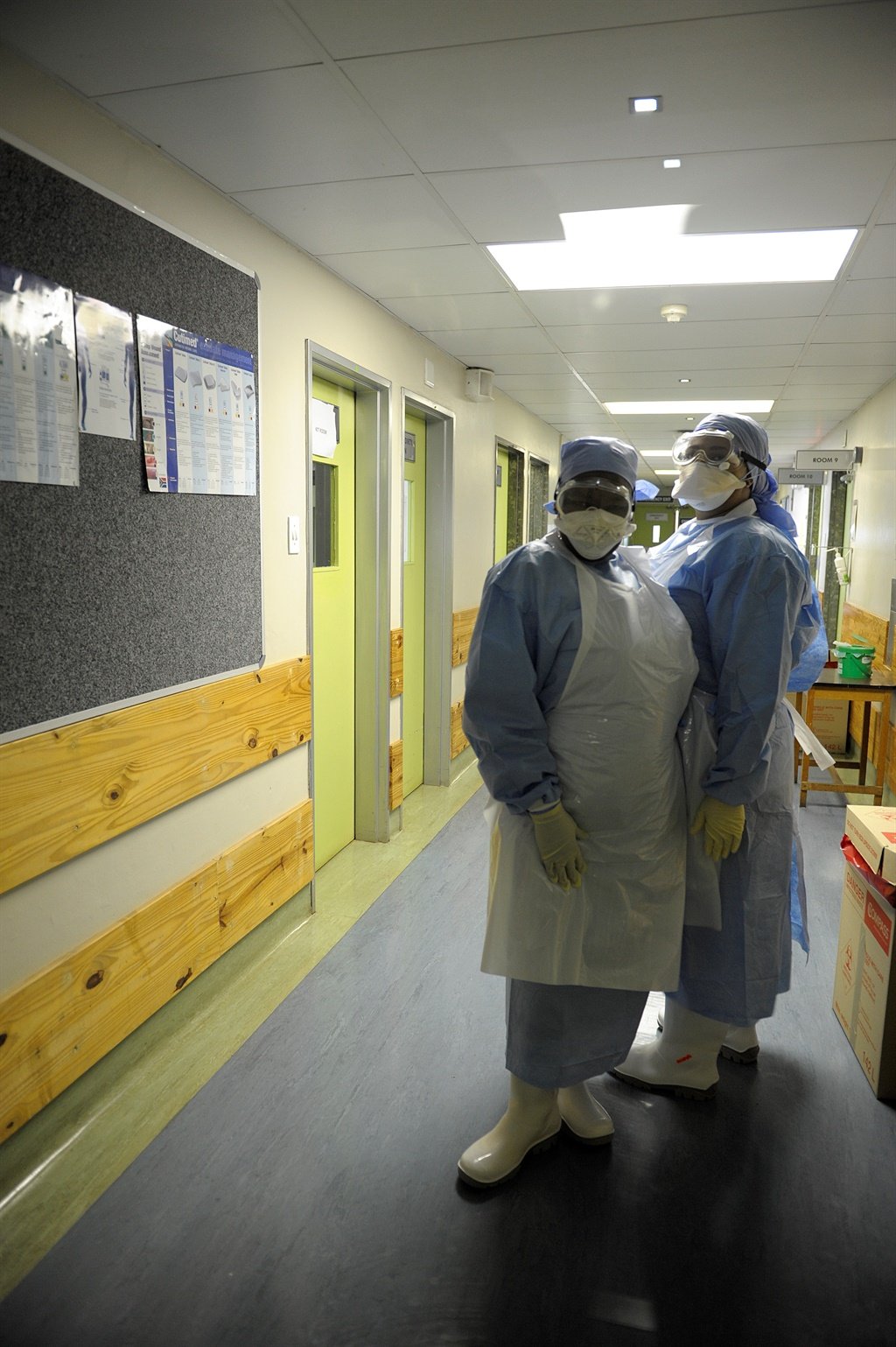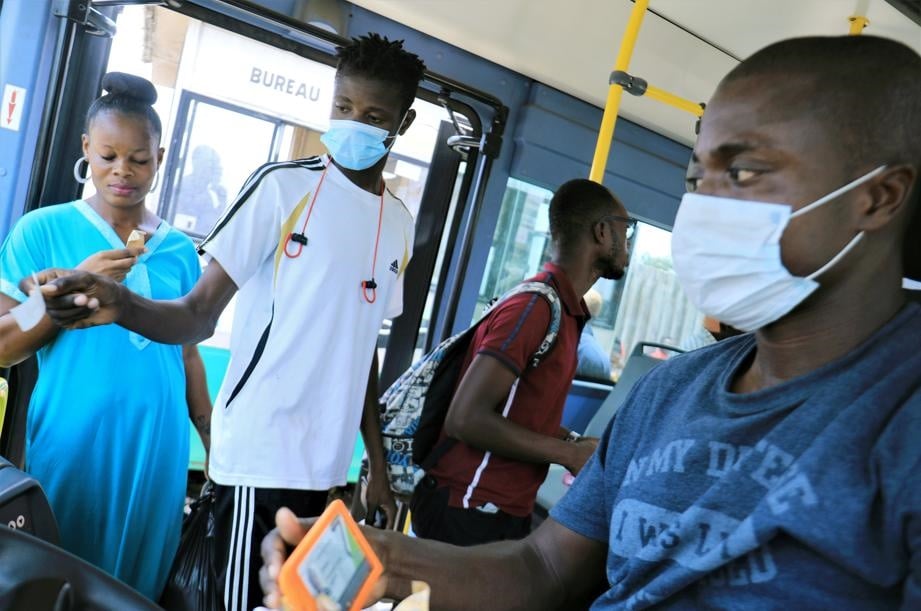
There are now 16 confirmed cases of the Covid-19 coronavirus in South Africa, with most of the infected in their 30s and the oldest being 57.
With the global spread of the virus, researchers, who inform medical and public health strategies, are working to find out who is most at risk of infection, severe illness and death.
The most comprehensive global data so far shows that people aged 60 to 80 and those who have chronic illnesses are at an increased risk of dying from Covid-19.
Males, compared with females, also seem to be at an increased risk of infection, but this could be related to smoking.
At present, it seems that there is little mortality in children under nine years old and it does not appear that pregnant women are more vulnerable to infection.
A pandemic
In the face of rapid global spread of the virus, the World Health Organisation (WHO) yesterday upped its classification of the outbreak to a pandemic.
Earlier this week, WHO director-general Tedros Adhanom implored countries to step up efforts to protect their elderly, saying that “if anything is going to hurt the world, it’s moral decay”, and not taking the death of a senior citizen as a serious issue is dangerous.
He said every individual is important in the battle against the virus which has, according to the latest figures by the Johns Hopkins University in the US, infected more than 120 000 people and claimed the lives of more than 4 000 people in 104 countries.
More importantly, although not reported enough, 65 972 people infected with the virus have recovered.
The number of infections, severe illness and deaths is higher among people who smoke and those with medical conditions such as diabetes, chronic respiratory and cardiovascular disease, cancer and hypertension.
People with compromised immune systems are also at greater risk of infection, although the impact of the virus on people living with HIV/Aids is not yet known.
Presumably, people with HIV who are on treatment and have healthy immune systems will not be at significantly increased risk of Covid-19, although it remains to be seen if this is the case.
Epidemiology of Covid-19 in SA
The SA Medical Research Council (SAMRC) in a statement this week said that while much has been learnt about the virus, the impact of Covid-19 in Africa is still a mystery.
The council points out that the risk factors for transmission and clinical outcomes are likely to be different in the region compared with countries in Europe, Asia and North America.
The SAMRC says it has become urgent to describe the epidemiology of Covid-19 in South Africa and to address diagnostic, therapeutic, host and viral factors that may facilitate transmission or protect against infection.
“South Africa, with its high HIV and tuberculosis (TB) burden of disease, may face a protracted Covid-19 outbreak if these conditions prolong viral shedding,” said the SAMRC.
Local research needs to concentrate on surveillance, therapeutics and understanding the local epidemiology and natural history of the Covid-19 pandemic, the council stressed.
Council president and chief executive Glenda Grey says funding for research to evaluate the impact of HIV and TB on the Covid-19 infection is critical, given the country’s burden of HIV/Aids and TB.
Data from China
While continually assimilating and updating global data, the WHO has been relying mainly on data from China – where the outbreak started – to form a picture of the demographics of the disease.
A Chinese Center for Disease Control and Prevention (China CDC) research report published three months into the outbreak showed that the majority of cases (87%) were in people aged 30 to 79. This was based on data from the 72 314 cases diagnosed with Covid-19 by February 11 in China, and could be a reflection of how the virus functions in the population rather than social interaction.
Teenagers and young people encounter many people at school, work and on public transport, but do not seem to be getting infected as much.
Only 8.1% of detected cases were young adults in their twenties, 1.2% were teenagers and 0.9% were children aged nine and below.
The WHO mission to China found that 78% of the cases reported until February 20 were people aged 30 to 69.
Mortality increases with age
The WHO-China report said mortality shot up with age, with the highest mortality recorded among people over 80 (21.9%).
The case fatality rate (CFR) – a measure of the severity of a disease, defined as the proportion of cases of a specified disease or condition which are fatal within a specified time – is higher in males than in females (4.7% vs 2.8%).
Retired patients had the highest CFR (8.9%). In patients with no chronic illness, the CFR was 1.4%, while patients with underlying medical conditions had much higher rates – 13.2% for those with cardiovascular disease, 9.2% for diabetes, 8.4% for hypertension, 8% for chronic respiratory disease, and 7.6% for cancer.
The China CDC found that 2.3% of confirmed cases resulted in death. The 14.8% fatality rate in people aged 80 and above could suggest chronic illness or compromised immune systems. For those in their fifties, the fatality rate was 1.3%, while it was 0.4% for those in the forties and 0.2% in those aged 10 to 39.
The effect of sex on susceptibility to Covid-19 is less clear than that of age, but preliminary data suggest that men might be more susceptible.
China CDC found that 106 men had the disease for every 100 women, while the WHO mission found that men made up 51% of cases.
The difference in fatality rates, however, is real – 1.7% for women and 2.8% for men, China CDC reported.
Disease in children appears to be relatively rare and mild, with about 2.4% of the total reported cases among individuals aged below 19.
A small proportion of those aged 19 and below developed severe (2.5%) or critical (0.2%) disease.
Pregnant women do not appear to be more susceptible to severe Covid-19 symptoms, and there is no evidence that the virus can pass to a baby during pregnancy.
This is based on observations from China, including a WHO report that looked at data from 147 pregnant women, of whom 64 were confirmed to have Covid-19, 82 were suspected cases and one was asymptomatic. Of the total, 8% had severe symptoms and 1% were critically ill.
. Baleta is an independent science writer, media consultant and facilitator
This article was produced by Spotlight, a primarily online publication monitoring South Africa’s response to TB and HIV/Aids




 Publications
Publications
 Partners
Partners










